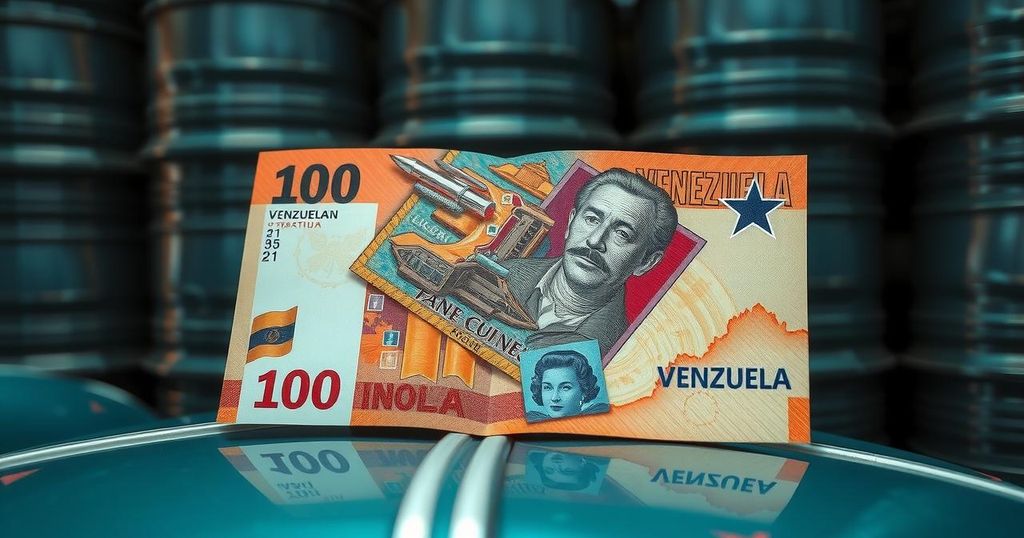Independent Experts Support Opposition Claims of Maduro’s Election Defeat
Independent election experts have corroborated tally sheets from Venezuela’s opposition, asserting these documents indicate President Nicolás Maduro’s defeat in the July election. This validation was presented to the Organization of American States amid ongoing disputes surrounding the electoral process, wherein the opposition collected over 80% of voting machine records, conflicting with the government’s declaration of victory.
In a recent development regarding Venezuela’s disputed presidential election, an independent group of electoral experts has validated the tally sheets presented by the opposition, suggesting they indicate President Nicolás Maduro’s defeat. This confirmation was made to the Organization of American States (OAS) during a session aimed at resolving the electoral controversy that has arisen following the July elections. The group, which included experts from the U.S.-based Carter Center, assessed the electronic voting system utilized during the election and highlighted its functionality. They indicated that both the ruling party and other involved parties are aware of the verifiable truth pertaining to the election outcome. The session follows a request from several Latin American countries, emphasizing the need for transparency in electoral processes. The disputed tally sheets, known as actas, play a critical role in Venezuela’s election results declaration. Each of the approximately 30,000 electronic voting machines deployed on July 28 printed several copies of these sheets, which allow election representatives to document the results as they are transmitted to the National Electoral Council. Although the electoral authorities prematurely declared Maduro the winner shortly after the closing of the polls, they failed to provide detailed results by voting machine, citing a website hack as the reason for this lack of transparency. Conversely, the opposition coalition managed to collect tally sheets from over 80% of the voting machines and subsequently released them online, leading the government to contest their authenticity and initiate investigations against members of the opposition, including Edmundo González, the coalition’s candidate. The Carter Center asserted that a paper trail exists alongside the electronic voting process, affirming its integrity through observations made by numerous poll watchers from both the opposition and the ruling party. Jennie Lincoln, who led the Carter Center’s electoral mission in Venezuela, articulated during the diplomatic session that, “The voting system is electronic, but it offers a paper trail – proof of what the electronic machine reports – and that is what was collected by tens of thousands of poll watchers, not just from the opposition, but also from the government party, the PSUV, that also has the same information.” However, she refrained from declaring a winner, emphasizing that such determinations fall under the jurisdiction of the electoral authorities. Additionally, Lincoln noted that the Carter Center recently received the contested tally sheets via international mail but did not disclose the sender’s identity. The OAS and several of its member states continue to press Venezuela’s electoral authorities to release comprehensive voting data, aiming for clearer insights into the election’s legitimacy.
The article revolves around the contentious presidential election held in Venezuela in July, where the outcome, favoring President Nicolás Maduro, has been disputed predominantly by the opposition. The involvement of independent electoral experts highlights the growing concern over electoral integrity in the region, reflecting a broader context of political instability in Venezuela. The use of electronic voting machines with accompanying paper trails is a critical element in this debate, as it could potentially validate or invalidate the official claims made by the ruling government regarding the election results.
The validation of the opposition’s tally sheets by independent electoral experts marks a significant moment in Venezuela’s ongoing electoral dispute. With the Carter Center asserting the functionality of the voting system and indicating that both the government and opposition possess similar pieces of evidence, the call for transparency and detailed electoral data becomes more pressing. The situation exemplifies the complexities surrounding electoral legitimacy in Venezuela, necessitating a closer examination by international observers to ensure democratic integrity.
Original Source: apnews.com








Post Comment